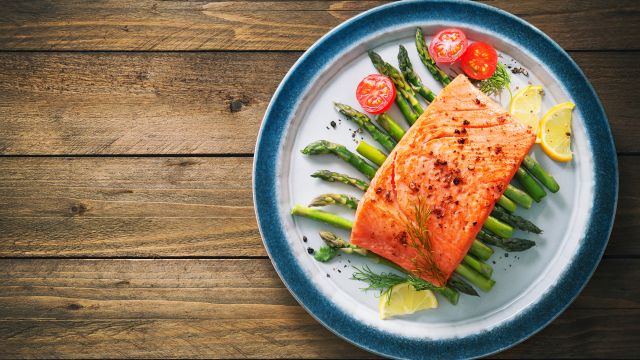The foods you eat can play an important role in managing Crohn’s disease. Certain foods can trigger or exacerbate symptoms. Adopting or following different eating habits may help prevent flare ups and reduce inflammation. Eating well is also important to overall health and may help you feel better.
Below are some eating strategies to think about. Remember that your best source of information about your health is your healthcare provider, and you should not make any drastic changes to your diet without talking to your healthcare provider.
What to avoid
Eating certain foods can trigger symptoms or make symptoms worse. These trigger foods can vary from person to person, but some are more common than others. This list of foods includes:
- Lactose. Milk and dairy products may aggravate symptoms such as gas, abdominal pain, and diarrhea. You may want to choose lactose-free alternatives.
- Non-absorbable sugars. This includes sorbitol, mannitol, and other sugar alcohols. These are found in sugar-free gum, ice cream, and candy, as well as some fruit juices, including prune, peach, and pear juice.
- Sugary foods and drinks. The obvious ones include candy, soda, and sugary pastries. Also be wary of juices, which can be high in sugar. The best thing to do is look at the nutritional facts on the foods you eat and check the sugar content.
- High fat foods. While you are checking the nutritional label, also have a look at the fat content. You want to avoid saturated fats and consume recommended amounts of unsaturated fats. Greasy and fried food should be avoided.
- Insoluble fiber. People with Crohn’s who are at a high risk of an obstruction are advised to eat a diet that is low in insoluble fiber, and all Crohn’s patients are advised to avoid insoluble fiber during flare ups. Insoluble fiber can make symptoms like cramping and diarrhea worse. Examples of insoluble fiber include seeds, nuts, the skins on apples and other fruits, vegetables (especially raw vegetables), and whole grains.
- Spicy foods. Avoid spicy foods, condiments, and ingredients, such as spicy peppers, hot sauce, chili powder, and cayenne pepper.
- Alcohol. The relationship between alcohol and Crohn’s disease symptoms is unclear and requires more research. But it is recommended that people with Crohn’s disease limit drinking and pay attention to what they drink and how it affects them. Some research shows that certain alcoholic beverages may trigger symptoms more than others. Alcohol may also interact with medications.
- Caffeinated drinks. Including coffee, tea, soda, and energy drinks.
As mentioned above, trigger foods can vary from person to person. One thing you can do to help understand your trigger foods is keep a food journal, where you record what you eat, the quantities you eat, the times you eat, and your symptoms.
What to eat
There is no specific diet or meal-planning approach that is recommended for people with Crohn’s disease. General recommendations are that people with Crohn’s disease follow a nutrient-rich diet, eat a variety of foods, and pay attention to trigger foods. People with Crohn’s disease are also advised to eat between four and six smaller meals per day instead of three large meals.
Components of a nutrient-rich diet include adequate amounts of lean proteins, colorful fruits and vegetables, probiotic foods, and calcium-rich foods. It is also important to stay hydrated and drink plenty of water.
What to ask your HCP
Working with a healthcare provider is paramount to managing Crohn’s disease. In addition to your primary care physician and gastroenterologist, you may also want to work with a registered dietitian.
Crohn’s disease impacts everyone differently, and there is no substitute for individual assessment and attention to your treatment plan. Your healthcare providers can help you come up with an eating plan based around your nutritional needs. They can also advise you on supplements that can address nutritional deficiencies and malnutrition that may occur as a result of Crohn’s disease.






